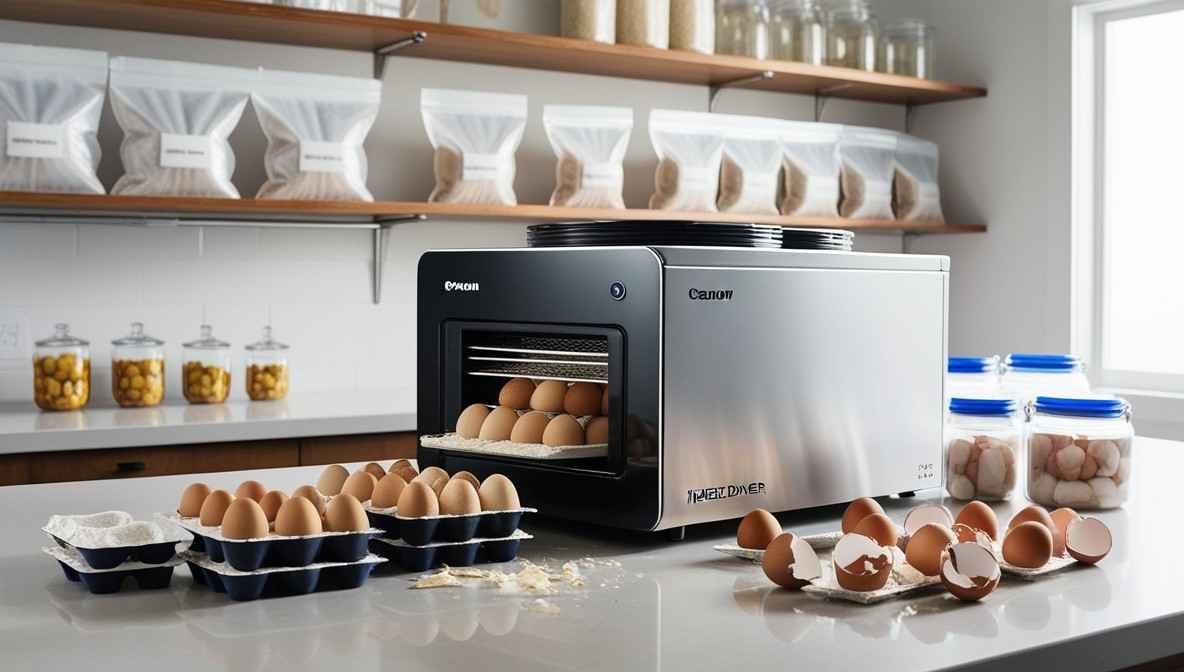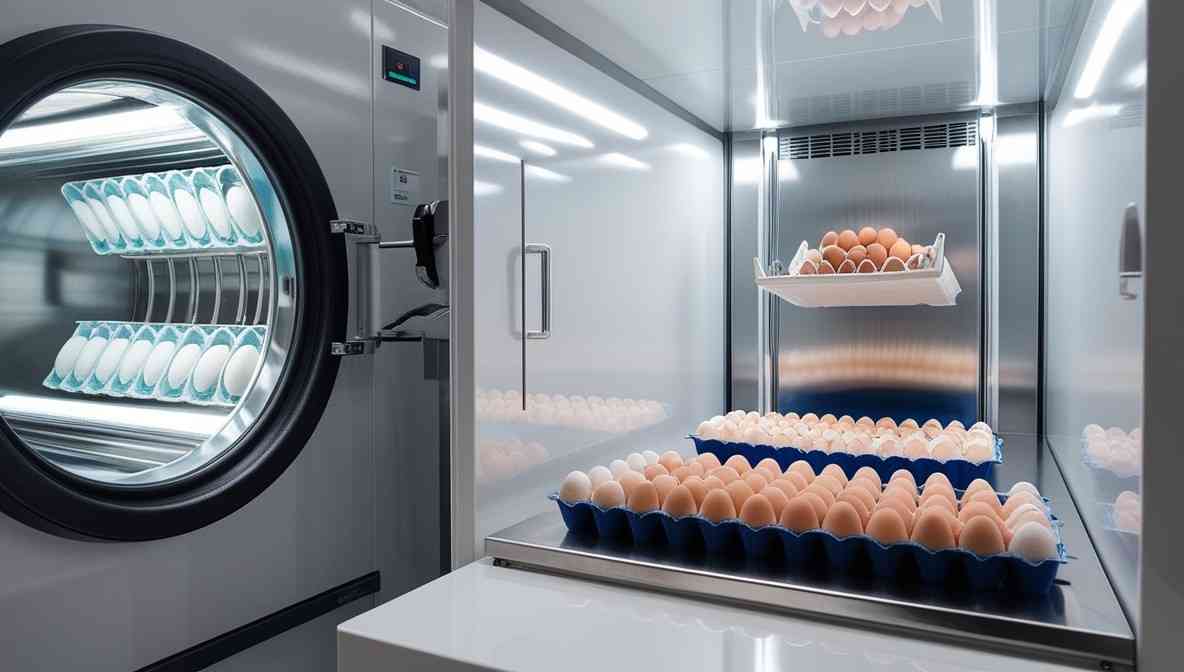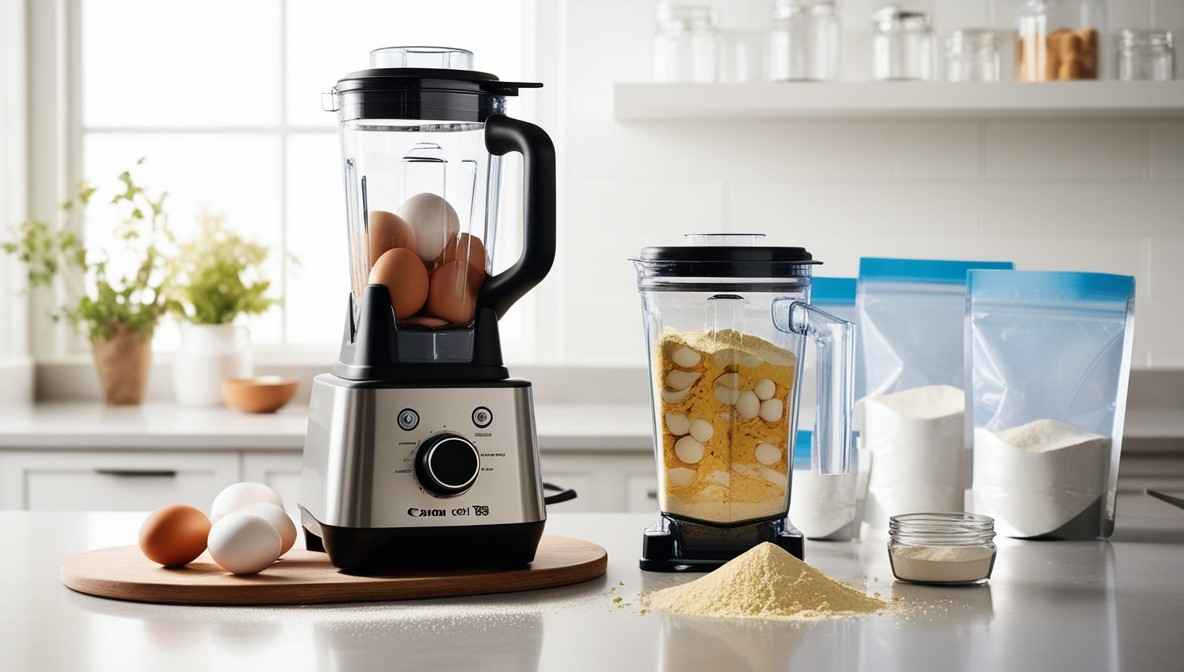Freeze-drying eggs is a revolutionary way to preserve eggs for both short- and long-term storage. With a shelf life of up to 20 years, freeze-dried eggs are an excellent option for those looking to save space and keep their food fresh. In this guide, we’ll walk you through the process of freeze-drying eggs, tips to ensure quality, and how to make powdered eggs for convenient use. Whether you’re a homesteader, prepper, or someone interested in food preservation, this method is a game changer.
Introduction: Why Freeze-Dry Eggs?
Freeze-drying food, especially eggs, has gained immense popularity in recent years for one key reason—long-term storage. Eggs are a versatile ingredient, but they can be tricky to store for long periods due to their perishability. Traditional methods like freezing only last a few months, and even water glassing stretches to just 18 months. However, freeze-dried eggs can last for up to 20 years! Whether you’re a homesteader preparing for the winter months or someone looking to save space in your freezer, freeze-drying eggs is an excellent solution.
Benefits of Freeze-Drying Eggs
1. Long Shelf Life
The most obvious benefit of freeze-dried eggs is their extended shelf life. Properly stored, these eggs can last up to 20 years without losing their nutritional value or flavor.
2. Nutritional Value Retention
Unlike some preservation methods, freeze-drying keeps the original nutritional content intact. You’ll still get the protein, vitamins, and minerals eggs are known for, even years after they’ve been dried.
3. Space-Saving Storage
Freeze-dried eggs take up much less space than fresh or frozen eggs. Once dried and stored in Mylar bags or jars, they can be stacked and organized with ease, freeing up precious space in your freezer or pantry.
Required Equipment for Freeze-Drying Eggs
To begin freeze-drying eggs, you’ll need a few essential items:
- A freeze dryer (available for home use)
- A blender or whisk for mixing eggs
- A freezer for pre-freezing the eggs before drying
- Mylar bags with oxygen absorbers or glass jars for storing your freeze-dried eggs
How to Prepare Eggs for Freeze-Drying
1. Blending the Eggs
Before placing your eggs in the freezer, you’ll need to blend them. This ensures an even consistency and helps prevent the fat content in the yolk from separating. You can use a blender or whisk the eggs in a large bowl.
2. Pre-Freezing the Trays
Once blended, pour the eggs into the freeze dryer trays. To save electricity and speed up the freeze-drying process, place the trays in your freezer first until the eggs are fully frozen.
Step-by-Step Process of Freeze-Drying Eggs
1. Setting up the freezer Dryer
Turn on your freezer and press the start button. The machine will prompt you to allow the vacuum chamber to cool for about 15 minutes.
2. Freezing Trays Before Drying
Once the vacuum chamber is cooled, insert the trays of frozen eggs. Freezing the trays ahead of time can shave off up to 8-10 hours of drying time, making the process more efficient.
3. Freeze-Drying Time
Close the door of the freezer and let it run. Depending on the amount of eggs per tray, the drying process can take anywhere from 16 to 24 hours.
Best Practices for Freeze-Drying Eggs
1. Avoiding Moisture Absorption
As soon as your eggs are done processing, transfer them into airtight containers right away. Allowing them to sit out for too long will cause the eggs to absorb moisture from the atmosphere, which can ruin them.
2. Lining Trays with Parchment Paper
For easier cleanup, line your trays with parchment paper. This prevents the eggs from sticking to the trays and makes transferring them into storage containers easier.
3. The Float Test for Older Eggs
If you’re unsure whether an egg is still good, you can do a simple float test. Place the egg in a bowl of water; if it floats, it’s bad and should not be used.
Post-Freeze-Drying Process
Once your freeze-dried eggs are done, you can store them in glass jars for short-term storage or Mylar bags with oxygen absorbers for long-term storage. The oxygen absorbers will help ensure the eggs remain fresh for years to come.
How to Make Powdered Eggs
1. Blending Freeze-Dried Eggs into Powder
To turn your freeze-dried eggs into powdered eggs, place the dried eggs into a high-speed blender. Make sure the blender is completely dry to avoid moisture absorption, which can ruin the eggs.
2. Storing Powdered Eggs
Once powdered, you can store the eggs in glass jars or Mylar bags, depending on how long you plan to keep them.
How Long Do Freeze-Dried Eggs Last?
Freeze-dried eggs can last up to 20 years if stored properly in airtight containers with oxygen absorbers. In a cool, dark environment, they will retain their nutritional value and taste.
Can You Freeze-Dry Raw Eggs?
Yes, you can freeze-dry raw eggs. The process remains the same, and once freeze-dried, the eggs are safe to store and use in a variety of recipes.
Are Freeze-Dried Eggs Healthy?
Freeze-dried eggs retain nearly all their original nutrients, making them just as healthy as fresh eggs. This is an excellent source of vital vitamins and protein.
Common Mistakes When Freeze-Drying Eggs
One common mistake is not properly sealing the storage containers, which allows moisture to seep in and spoil the eggs. Another is failing to blend the eggs thoroughly before freeze-drying, leading to uneven drying.
Storing Freeze-Dried Eggs: What You Need to Know
1. Glass Jars vs. Mylar Bags
For short-term storage, glass jars work well. For long-term storage, Mylar bags with oxygen absorbers are the best option to ensure the eggs stay fresh for years.
Uses for Freeze-Dried Eggs in Cooking
Freeze-dried eggs can be used just like fresh eggs in a variety of dishes. They work well in omelets, baking, and scrambled eggs. All you have to do is add water and stir.
Conclusion
Freeze-drying eggs is a fantastic way to preserve them for long-term storage while retaining their nutritional value. Whether you’re prepping for emergencies or looking to save space in your kitchen, freeze-drying is an easy, effective solution.
FAQs
How long will freeze-dried eggs last?
Freeze-dried eggs can last up to 20 years if stored properly in Mylar bags with oxygen absorbers.
Can you freeze-dry raw eggs?
Yes, freeze-drying raw eggs is safe and an excellent way to preserve them for future use.
Are freeze-dried eggs healthy?
Absolutely! Freeze-dried eggs retain nearly all their original nutrients, including protein and vitamins.
What’s the best way to store freeze-dried eggs?
For long-term storage, Mylar bags with oxygen absorbers are the best option.
How do you use freeze-dried eggs?
Simply rehydrate the eggs with water and use them just like fresh eggs in cooking or baking


